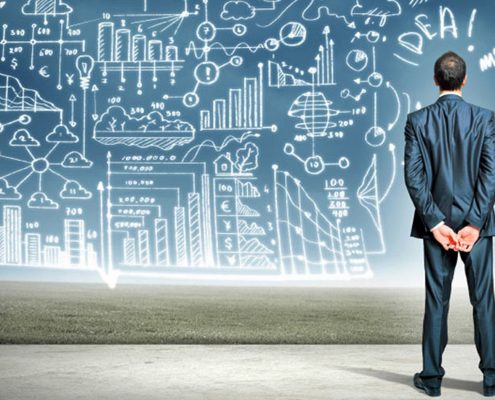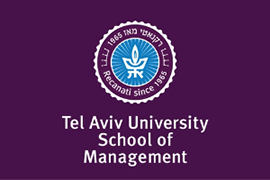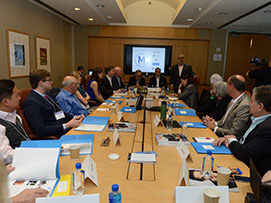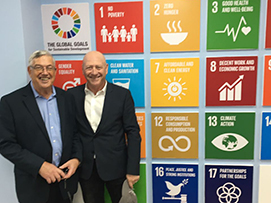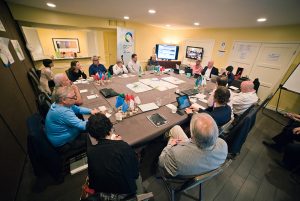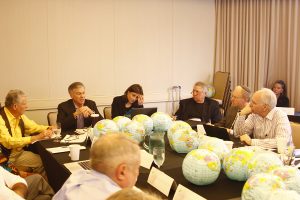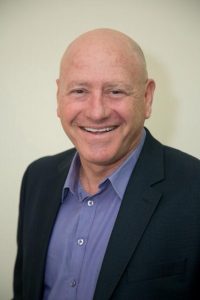The Time to Transform Nations is Now
No more proof is needed that environmental and societal crises present humanity with an immediate existential threat, or that sustainable models are necessary, profitable and economically sound. That was yesterday’s conversation.
Nations are motivated: ethically, practically and financially. 193 countries have already committed to align their actions with the intentions of the UN’s agenda, identifying and committing to 169 specific targets across 17 areas of concern, the United Nations’ Global Goals. The game started in 2015 and it extends to 2030. In the year 2020, the Kyoto Protocol kicks in: signatory nations will accrue penalties on any shortfalls from their country-specific targets. Nations must mobilize to address these threats immediately and with urgency.
On the nation-state level, however, the legacy governance and decision-making systems we have inherited from previous generations do not move quickly enough to address, with urgency, the challenges of the New Economy.
And we can’t evacuate 7.3 billion people.
So we need to reboot with a new global operating system designed around the following assumptions:
- The evidence is in and the time to act is now. We must shift from conversations about the problem to iterations of the solution. We cannot let the perfect be the enemy of the good.
- Most models for governance and methodologies for decision making are based on past-based metrics. While we must acknowledge and learn from the lessons of the past, there is an immediate need to develop and implement future-based models, structures, platforms and instruments that accelerate synchronization of and collaboration amongst all forces that work inside each nation-state.
- Current problem solving modalities are conceived on a scale of millions and billions of dollars, while the global challenges we face now require trillion dollar solutions.
- Egocentric and ethnocentric philosophies must give way to an ecocentric philosophy so that a United Humanity may emerge. Only radical collaboration will get us where we need to go.
- By 2020, nations not on track with their baseline commitments to the Kyoto Protocol and the United Nations’ Sustainable Development Agenda will be increasingly considered threats to humanity.
- Business as usual is out, breakthroughs and game-changing strategies are in.
In alignment with the 17 Global Goals of the United Nations’ Sustainable Development Agenda, The TransFormNation™ Initiative supports national leaders in accelerating the development and adoption of clear, feasible, practicable roadmaps to meeting their commitments to these goals. We seek to engage courageous leaders of committed nations that wish to be on track by 2020 to succeed by 2030.
TransFormNation™ is a development accelerator program designed to rapidly transform the mechanics of national conversation such that leadership—in collaboration with all critical stakeholders and subject matter experts—may address global-scale challenges with the energy, focus and urgency necessary to achieve quick alignment and to progress rapidly to the implementation of impactful solutions.
TransFormNation™ applies an Advocacy-2-Impact Accelerator Model™ to generate the transformation necessary to achieve these results. Over the course of an extended in-country engagement of approximately six months, we ask teams of influential change-makers questions that rapidly generate game-changing conversations from which powerful answers emerge with velocity. Elements of the model include:
GAP MAPPING
An Advance Research Team of country and subject matter experts (carefully selected by a National Steering Committee led by Senior TransFormNation™ Global Knowledge Managers) spends four weeks in situ reviewing existing systems, data and resources. They apply agnostic metrics to identify anticipated Global Goal shortfalls vis a vis committed goals and prepare reports for fact-based discussions.
GLOBAL GAME-CHANGERS IMPACT LABS
Throughout a six month engagement, we conduct a series of intensive ` transformation-acceleration labs to shift from purpose to game-changing impact, wherein the regionally integrated Steering Committee—made up of national leaders and subject matter experts—continually re-assess and reevaluate fundamental work assumptions to reset intention and direction.
REBOOT CAMP
Representatives from government, academia, NGOs, industry and civil society are selected to attend ReBoot Camp, a 6-week intensive training program, where they are developed into Global GameChangers that will lead the process of roadmap development.
Following ReBoot Camp, teams are assigned hands-on research practicums working directly with sustainability project development experts on successful projects models appropriate to the national roadmapping challenges ahead. They emerge from the experience as practical experts in their assigned model and methodology, ready to lead.
4D ROADMAPPING
Utilizing an urgent iterative co-creation methodology, we facilitate a 90-day effort to unleash the knowledge and genius of the human assets already on the ground to generate a Global Goals National Development Roadmap to identify an appropriate menu of impact investments, innovative funding mechanisms and global knowledge management that will bridge these gaps by 2030. Building on best practices, every potential investment is viewed through a “4D Lens” that considers and measures its impact in four contexts: economic, environmental, societal, and that of collective human consciousness.
ACTION CIRCLES
Local GameChangers, with roadmap in hand, begin implementation of planned initiatives supported by periodic Action Review Circles, facilitated by the TransFormNation™ team, including experts in leadership coaching, sustainable development project management, project finance and MRV. The TransFormNation™ team is then available for support as needed through 2030.
TransFormNation™ provides a safe environment for acceleration in which all stakeholders—NGOs, governments, industry and civil society—may examine their preparation and readiness for the future vis a vis their Global Goals National Development Roadmap, so they can work proactively and creatively, not reactively..
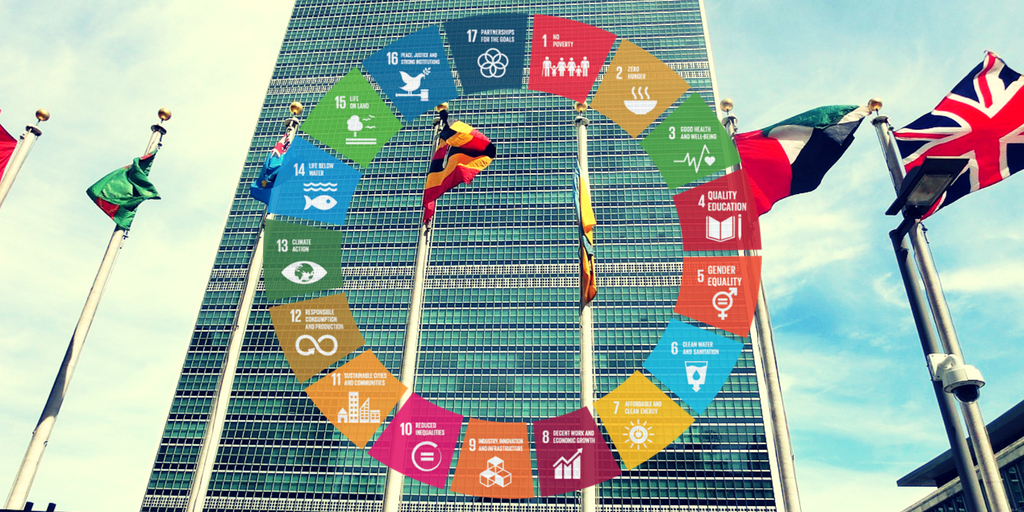 SDG-Market launches at UN HQ in New York
SDG-Market launches at UN HQ in New York
